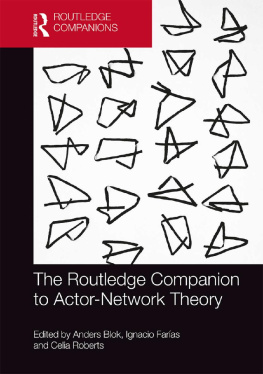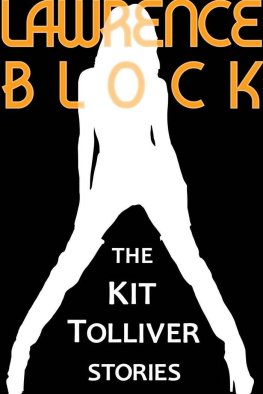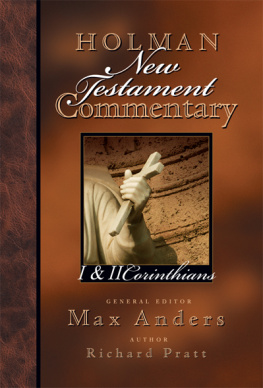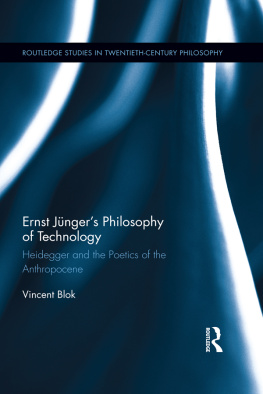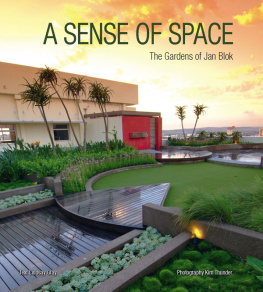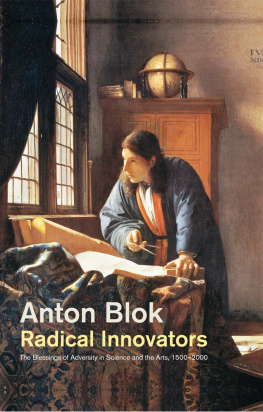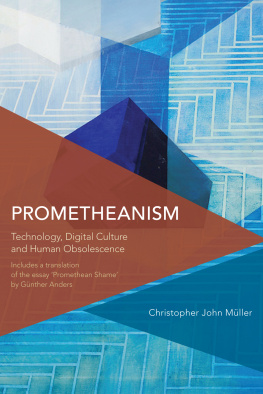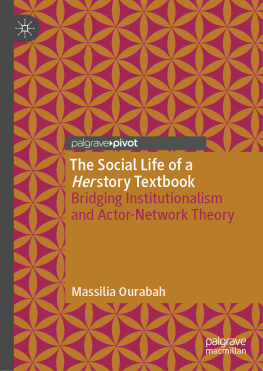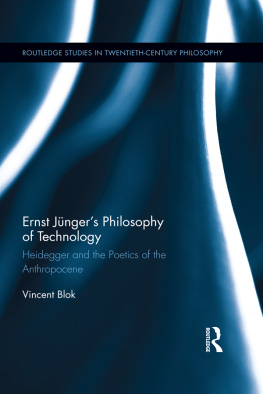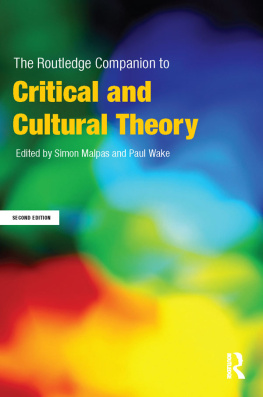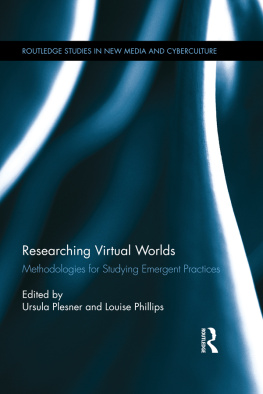Anders Blok - The Routledge Companion to Actor-Network Theory
Here you can read online Anders Blok - The Routledge Companion to Actor-Network Theory full text of the book (entire story) in english for free. Download pdf and epub, get meaning, cover and reviews about this ebook. year: 2019, publisher: Taylor and Francis, genre: Science. Description of the work, (preface) as well as reviews are available. Best literature library LitArk.com created for fans of good reading and offers a wide selection of genres:
Romance novel
Science fiction
Adventure
Detective
Science
History
Home and family
Prose
Art
Politics
Computer
Non-fiction
Religion
Business
Children
Humor
Choose a favorite category and find really read worthwhile books. Enjoy immersion in the world of imagination, feel the emotions of the characters or learn something new for yourself, make an fascinating discovery.
- Book:The Routledge Companion to Actor-Network Theory
- Author:
- Publisher:Taylor and Francis
- Genre:
- Year:2019
- Rating:3 / 5
- Favourites:Add to favourites
- Your mark:
- 60
- 1
- 2
- 3
- 4
- 5
The Routledge Companion to Actor-Network Theory: summary, description and annotation
We offer to read an annotation, description, summary or preface (depends on what the author of the book "The Routledge Companion to Actor-Network Theory" wrote himself). If you haven't found the necessary information about the book — write in the comments, we will try to find it.
The Routledge Companion to Actor-Network Theory — read online for free the complete book (whole text) full work
Below is the text of the book, divided by pages. System saving the place of the last page read, allows you to conveniently read the book "The Routledge Companion to Actor-Network Theory" online for free, without having to search again every time where you left off. Put a bookmark, and you can go to the page where you finished reading at any time.
Font size:
Interval:
Bookmark:
This companion explores ANT as an intellectual practice, tracking its movements and engagements with a wide range of other academic and activist projects. Showcasing the work of a diverse set of second generation ANT scholars from around the world, it highlights the exciting depth and breadth of contemporary ANT and its future possibilities.
The companion has 38 chapters, each answering a key question about ANT and its capacities. Early chapters explore ANT as an intellectual practice and highlight ANTs dialogues with other fields and key theorists. Others open critical, provocative discussions of its limitations. Later sections explore how ANT has been developed in a range of social scientific fields and how it has been used to explore a wide range of scales and sites. Chapters in the final section discuss ANTs involvement in real world endeavours such as disability and environmental activism, and even running a Chilean hospital. Each chapter contains an overview of relevant work and introduces original examples and ideas from the authors recent research. The chapters orient readers in rich, complex fields and can be read in any order or combination. Throughout the volume, authors mobilise ANT to explore and account for a range of exciting case studies: from wheelchair activism to parliamentary decision-making; from racial profiling to energy consumption monitoring; from queer sex to Korean cities. A comprehensive introduction by the editors explores the significance of ANT more broadly and provides an overview of the volume.
The Routledge Companion to Actor-Network Theory will be an inspiring and lively companion to academics and advanced undergraduates and postgraduates from across many disciplines across the social sciences, including Sociology, Geography, Politics and Urban Studies, Environmental Studies and STS, and anyone wishing to engage with ANT, to understand what it has already been used to do and to imagine what it might do in the future.
Anders Blok is an Associate Professor of Sociology at the University of Copenhagen. He is the co-author (with Torben E. Jensen) of Bruno Latour: Hybrid Thoughts in a Hybrid World (Routledge 2011) and the co-editor (with Ignacio Faras) of Urban Cosmopolitics: Agencements, Assemblies, Atmospheres (Routledge 2016).
Ignacio Faras is a Professor of Urban Anthropology at the Humboldt University Berlin. He is the co-editor of Urban Assemblages: How Actor-Network Theory Changes Urban Studies (Routledge 2009, with Thomas Bender), Technical Democracy as a Challenge for Urban Studies (2016, with Anders Blok) and Studio Studies: Operations, Topologies & Displacements (Routledge 2015, with Alex Wilkie).
Celia Roberts is a Professor in the School of Sociology, Australian National University. She is the co-author, with Adrian Mackenzie and Maggie Mort, of Living Data: Making Sense of Health Biosensors (2019) and the author of Puberty in Crisis: The Sociology of Early Sexual Development (2016).
Edited by Anders Blok, Ignacio Faras and Celia Roberts

First published 2020
by Routledge
2 Park Square, Milton Park, Abingdon, Oxon OX14 4RN
and by Routledge
52 Vanderbilt Avenue, New York, NY 10017
Routledge is an imprint of the Taylor & Francis Group, an informa business
2020 selection and editorial matter, Anders Blok, Ignacio Faras and Celia Roberts; individual chapters, the contributors
The right of Anders Blok, Ignacio Faras and Celia Roberts to be identified as the authors of the editorial material, and of the authors for their individual chapters, has been asserted in accordance with sections 77 and 78 of the Copyright, Designs and Patents Act 1988.
All rights reserved. No part of this book may be reprinted or reproduced or utilised in any form or by any electronic, mechanical, or other means, now known or hereafter invented, including photocopying and recording, or in any information storage or retrieval system, without permission in writing from the publishers.
Trademark notice: Product or corporate names may be trademarks or registered trademarks, and are used only for identification and explanation without intent to infringe.
British Library Cataloguing-in-Publication Data
A catalogue record for this book is available from the British Library
Library of Congress Cataloging-in-Publication Data
A catalog record has been requested for this book
ISBN: 978-1-138-08472-8 (hbk)
ISBN: 978-1-315-11166-7 (ebk)
Typeset in Bembo
by codeMantra
Ignacio Faras, Anders Blok and Celia Roberts
Ignacio Faras, Anders Blok and Celia Roberts
Daniel Lpez-Gmez
Adrian Mackenzie
Brit Ross Winthereik
Atsuro Morita
Jos Ossandn
Fabian Muniesa
Michael Guggenheim
Anders Blok, Ignacio Faras and Celia Roberts
Casper Bruun Jensen
Alvise Mattozzi
Jrme D. Pontille
Noortje Marres
Ericka Johnson
Michael Schillmeier
Martin Savransky
Ignacio Faras, Anders Blok and Celia Roberts
Nigel Clark
Kane Race
Derek P. McCormack
Sonja Jerak-Zuiderent
Francis Halsall
Marcelo C. Rosa
Wen-Yuan Lin
Celia Roberts, Anders Blok and Ignacio Faras
Amade Mcharek and Irene van Oorschot
Uli Beisel
Liliana Doganova
Alexa Frber
Arthur Arruda Leal Ferreira
David J. Denis
Anders Blok, Ignacio Faras and Celia Roberts
Endre Dnyi
Albena Yaneva and Brett Mommersteeg
Robert Oppenheim
Kregg Hetherington
Kristin Asdal
Carolin Gerlitz and Esther Weltevrede
Celia Roberts, Anders Blok and Ignacio Faras
Toms Snchez Criado and Israel Rodrguez-Giralt
Shuhei Kimura and Kohei Inose
Emma Cardwell and Claire Waterton
Alex Wilkie
Yuri Carvajal Baados
Kristin Asdal is a Professor at TIK Center for Technology, Innovation and Culture at the University of Oslo. She has published widely across science and technology studies (STS), environmental studies and political and social theory. A key concern in her work is method issues in STS and beyond and she has co-edited several books and special issues on the subject. Her recent publications include Humans, Animals and Biopolitics: The More than Human Condition (co-edited with Tone Druglitr and Steve Hinchliffe; Routledge 2017).
Yuri Carvajal Baados was born in Valparaso, Chile, in 1961. He studied at the University of Chile, Valparaso. He was relegated in 1981, as a student opposed to the dictatorship, but then gained his MD in 1986. He was the Medical Chief in La Feria public primary attention in La Victoria (a lower-class township), Santiago during 19871993. He did a Masters in Public Health 1998 and worked as a Physician of Occupational and Environmental Health during 19972003. He became the Chief of the Llanchipal Health Service in 20032006 and then the Doctor of Public Health in 2011. He was the Editor of the Chilean Journal of Public Health 20112015 and the Director of Puerto Montt Hospital in 20162018. He is currently an Assistant Professor at the University of Chile and an Editor at Cuadernos Mdico-Sociales.
Uli Beisel is an Assistant Professor of Culture and Technology at Bayreuth University (Germany) and holds a PhD in Human Geography from the Open University (UK). She has worked on human-mosquito-parasite entanglements in malaria control in Ghana and Sierra Leone and the translation of new health technologies in Uganda and Rwanda. Her new research is looking at trust in biomedicine and healthcare infrastructures after the Ebola epidemic in a comparative project in Sierra Leone, Ghana and Uganda. Ulis work has been published by
Font size:
Interval:
Bookmark:
Similar books «The Routledge Companion to Actor-Network Theory»
Look at similar books to The Routledge Companion to Actor-Network Theory. We have selected literature similar in name and meaning in the hope of providing readers with more options to find new, interesting, not yet read works.
Discussion, reviews of the book The Routledge Companion to Actor-Network Theory and just readers' own opinions. Leave your comments, write what you think about the work, its meaning or the main characters. Specify what exactly you liked and what you didn't like, and why you think so.

